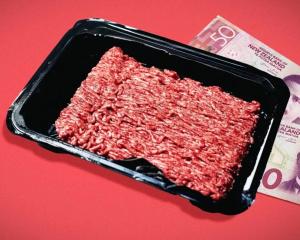
Beef + Lamb New Zealand (BLNZ) chief executive Sam McIvor told New Zealand Roundtable for Sustainable Beef members, during a panel talk at its Christchurch conference, the trading environment was looking difficult for the next five to 10 years.
"We just have to keep progressing because we are entering a trade phase that has probably been the toughest since almost World War 2.
"Increasing protectionism internationally, inward looking and people are [looking] at every opportunity to keep New Zealand out of their markets.
"So [we need to be] ahead of the game and anticipating what those barriers will be and being able to manage them."
He said the European Union had a deforestation regulation in place which New Zealand was finding difficult to meet.
Invited to the floor to reply, New Zealand’s special agricultural trade envoy Hamish Marr said New Zealand was still well placed for trade going forward.
"We have a very unique production profile and it’s been said our animals go to feed whereas a lot of other countries the feed goes to animals so our carbon footprint per kilogram of food produced is naturally very, very low."
He said it was up to trade negotiators to capitalise on this good story.
"Protectionism is becoming more and more of a thing. As much as we have a good story to tell and be proud of it, the rest of the world for some strange reason sees us as a threat in terms of production and that we have this untapped pool of products here that as soon as the box is ticked for trade we are going to pour lamb and beef into their markets and ruin existing markets.
"One of my key jobs is to actually say we have reached peak cow, reached peak sheep and we can’t do that."
Mr Marr said New Zealand wanted to add value to existing markets, work together and not disrupt global markets.
Audits and assurance schemes were making incremental differences for adding value, he said.
The roundtable was set up in 2019 with a membership including BLNZ, McDonald’s, Fonterra, meat processors and the SPCA.
Mr McIvor said the value needed to be found from consumers resilient to economic "ups and downs".
New Zealand was suffering at the moment because its major customer base of China was going through a tough time financially.
He said the likes of McDonald’s had sent farmers a clear signal to take sustainable action and this was coming at a cost which would hopefully come back from customers.
McDonald’s Australia New Zealand sustainable sourcing manager Merri King said customers were feeling a cost-of-living crisis around the world, but large businesses had a responsibility to continue the work on sustainable beef.
"At some point in time customers will come up to the counter having much more self-awareness of why they are buying what they are buying.
"That goes back to how we tell our stories better and the focus is on our global customer and being able to sell and tell that sustainability story."

She said the company was a major exporter to its overseas restaurants and had to take sustainability seriously.
Most of McDonald’s scope-3 emissions came from beef production as a big burger business.
The focus the past year had been on understanding Australia’s beef emissions profile and now New Zealand emissions. Once they understood that, they were in a position to act at pace and find partners to work with in the beef supply chain, she said.
"I think you guys are ahead of the curve ball and probably doing well understanding the data. It’s been really interesting today hearing about data and education because that’s exactly what we are hearing and seeing in Australia as well."
The food chain is among companies to have signed up to science-based targets to help keep global temperature rises below 1.5°C.
McDonald’s was not interested in greenwashing or buying land with tree blocks and wanted to stand by an environmental direction led by data and science, she said.
Mr McIvor said the beef industry was well positioned to handle sustainability challenges and there were opportunities to improve.
He said they included one million non-replacement calves in the dairy industry and feeding a growing pet food market.
"Whereas our sheep industry has been going strength from strength, there’s a massive opportunity in turning around our beef genetics too."
He said sustainability tools were being based around genetics, feeding and animal health and welfare which would optimise growth and the carbon footprint.
Climate change and biodiversity would likely be dominating factors in the global food chain over the next 10 years. Clear sustainability targets were needed for farmers to crack on and make changes to their farm systems and genetics, he said.
"We have a laser-like focus now on productivity and profitability within sustainability boundaries.
"If you’re not in the black it’s quite hard and if you’re red it’s really difficult. We have got to make sure that financial resilience is there to invest in the long term."
Rabobank acting chief sustainability officer Blake Holgate said environmental sustainability had financial implications for businesses.
"Our stakeholders, whether its our regulators, investors or clients, are saying ‘what actual impact do you have on the climate and water quality in New Zealand?’ So we have increasingly got to start tracking how we are going."
SPCA chief scientific officer Arnja Dale said beef cattle needed a good life, shelter and to express normal behaviour.
Improvements in animal welfare were needed for New Zealand to stay ahead of the game globally.
"We know that we always have a bell curve with any farming sector, so the ones at the top of the bell curve are fantastic and world-leading and doing amazing things. But we do have some that shouldn’t be in the farming sector."
The coalition government looking to reverse a ban on live exports of livestock was disappointing, as the SPCA had spent 10 years campaigning for the ban, she said.














